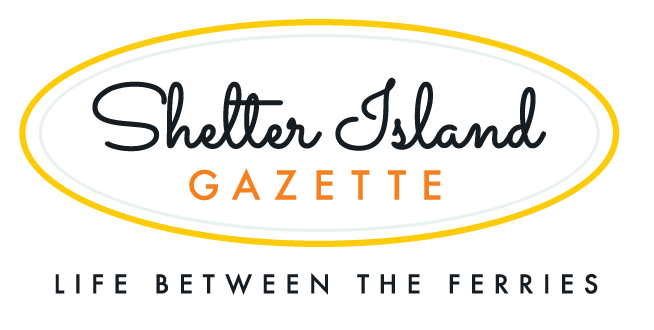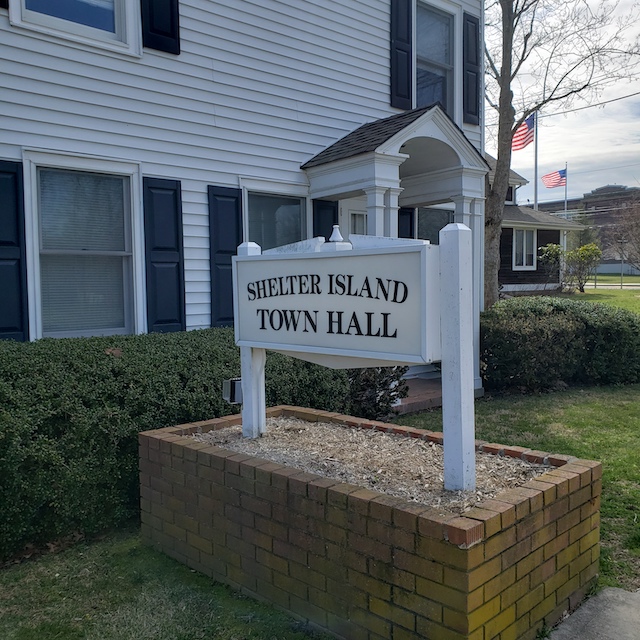There’s no smoking at Shelter Island’s Wades and Crescent beaches, and the Town Board is considering extending that ban to all public beaches, parks, and recreation areas.
The Town Code smoking rule aims to maintain the two beaches as family-friendly areas. The Town Board enacted the local law after New York State legalized marijuana for recreational use. The ban covers tobacco and marijuana, including smoking and vaping.
Councilwoman BJ Ianfolla said members of the Taylor’s Island Preservation and Management Committee had asked that the Town consider extending the ban to that island. The request’s dual purpose is to reduce pollution from cigarette butts and vaping cartridges in the pristine location and minimize the risk of damage to the Smith-Taylor Cabin, a wooden structure on the National Register of Historic Places.
Instead of approaching the question piecemeal, Ianfolla asked why not amend the code to include all Town-owned properties (federal and state regulations ban smoking in Town workplaces).
Councilman Jim Colligan suggested following the state’s lead and banning it at all Town-owned properties — beaches, parks, recreational facilities, and shoreline access points (about 140 around the Island).
Some local recreational areas — Fiske Field and the nearby basketball and tennis courts — belong to the school, where state education law prohibits smoking.
Town Attorney Stephen F. Kiely said he’d draft a Town Code amendment, which would be subject to a public hearing. Follow this link to read the state ban, which applies only to state-owned facilities. The state enacted a $50 fine for violators. To be determined: what fine the Town might impose and the boundaries.
Board endorses WQIP recommendations
The Town Board also endorsed committee efforts to streamline Water Quality Improvement Project grant applications and to bolster grant funds for Islanders seeking to replace aging septics with modern I/A systems.
Deputy Supervisor Amber Brach-Williams recommended a minor change in wording to clarify that applicants must hire a design professional.
She presided over Tuesday’s work session in the absence of Supervisor Gerry Siller. Councilwoman Meg Larsen recused herself from the WQIP discussion, as her family is one of the Island’s primary wastewater treatment system providers.
Brach-Williams, Ianfolla, and Colligan agreed that approval of new thresholds for local WQIP grants won’t be retroactive; those who’ve already received grants can’t apply for additional funds.
You can read the WQIP recommendations at this link to the committee’s page on the Town website.
Compost buckets are coming soon
The Town Board endorsed a Green Options Committee proposal to support Sylvester Manor’s renewed composting program. It provisionally authorized about $1,100 in funds to purchase 100 5-gallon lidded buckets and outfit them with custom labels that explain composting best practices.
They’ll be available at the Green EXPO (August 26, from 11 to 3 PM on school grounds) and, as supplies last, at the weekly Havens Farmers Market.
Participants will fill their buckets with kitchen wastes suitable for composting — coffee grounds, fruit and vegetable scraps, and eggshells, among other items. On Saturdays, they’ll bring the buckets to Sylvester Manor’s Farmstand to be weighed in and emptied for eventual dispersal onto new compost heaps.
Sylvester Manor launched the program a few years back, but Farm Manager Arielle Gardner said the initial compost location proved problematic. Compost can attract rodents, so placing them far from areas where produce is grown is best. Gardner said that the Manor had shut down the previous effort near its greenhouses when it attracted rats. She said the new compost heaps would be farther away from the produce farm and neighboring properties.
A water quality punch list
Councilman Colligan, retiring in January after eight years on the board, asked his colleagues to review a punch list of water quality initiatives he’d like to complete before his term ends.
The consensus was that state regulations or Town Code already cover some of the 11 items, some are in the works, and others aren’t worth pursuing.
For example, Colligan recommended that the Town require Water Sense-certified appliances and fixtures, but others weighed in to say state building codes mandate this. He said he’d like to see the Town require Energy Star appliances in new construction or renovations in water-sensitive areas. But, Building Inspector Reed Karen said he’s not sure the rating system is “helpful or just feel-good,” particularly regarding water savings.
Colligan also suggested that landscape plans for any new construction or significant renovation in the Near Shore Overlay (the Island’s largest zoning district) include only native plants and grasses. Kiely said the Town already enforces vegetative buffers as part of the Planning Board’s wetland permitting. (It requires site plan review for special permits, too.) But without such enforcement triggers, such a broad expansion of site-plan review “would entail expertise beyond what we have in place now.”
Kiely noted that many of Colligan’s punch list items are under consideration as part of the Comprehensive Plan Update or fall under two proposals already being considered: an aquifer protection overlay district and an update of the Town’s irrigation code.
At Kiely’s invitation, Colligan agreed to join a working group on the overlay district. Brach-Williams said she’d represent the Town Board on the irrigation code subcommittee.





